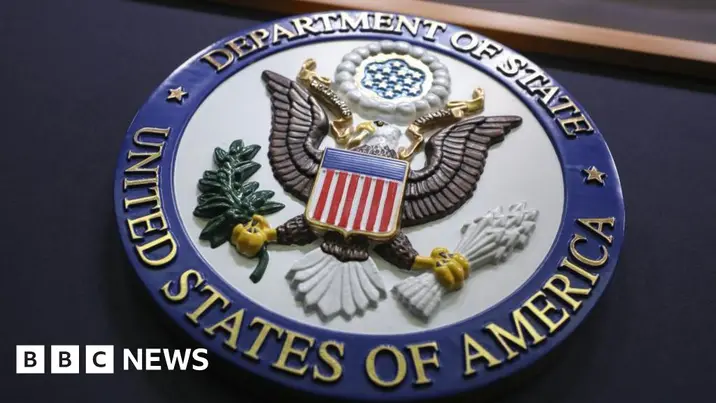T4K3.news
Germany rejects US censorship claims in rights report
Berlin says the US document mislabels Germanys freedom of expression and warns of political bias in the 2024 Rights Report.

Berlin defends freedom of expression as Washington cites political bias in the 2024 report.
Germany pushes back on US censorship claims in rights report
The 2024 US State Department Human Rights Report was released after a delay. It says Germany has a very high level of freedom of expression but it also notes concerns over restrictions on speech and antisemitic threats in some contexts. It cites steps by German authorities to investigate and punish officials accused of abuses, showing a mixed record.
Berlin rejected the document, saying there is no censorship in Germany and that freedom of expression is protected by law. The government argued the report reflects political aims and omissions. Rights groups Amnesty International and Human Rights Watch criticized the report for missing or mischaracterizing abuses to fit a political agenda. The report also treated Israel and El Salvador more leniently than some allies expected, and US political activity added to the tension. The piece notes the wider debate about how international rights benchmarks are written and read in a politicized environment.
Key Takeaways
"There is no censorship in Germany"
Statement by Deputy Government Spokesman Steffen Meyer
"The report demonstrates what happens when political agendas take priority over the facts"
Comment by Josh Paul, former State Department official
"Amnesty International criticized the report for omissions and bias"
Amnesty International response referenced in the article
"Human Rights Watch called the report biased and incomplete"
HRW response referenced in the article
The clash shows how rights reporting can become a political instrument in a polarized era. When a document is revised to align with a presidencys policies, credibility can suffer and allies worry about the reliability of a benchmark.
The broader question is how to guard independence of monitors while maintaining diplomatic ties. The risk is a growing gap between what rights groups see and what governments want to show, a gap that could erode trust in future reports.
Highlights
- There is no censorship in Germany
- The report demonstrates what happens when political agendas take priority over the facts
- Amnesty International criticized the report for omissions and bias
- Human Rights Watch called the report biased and incomplete
Political and diplomatic risk
The piece touches on sensitive political territory and could strain relations with allies if the report is seen as biased or misrepresented. Activist groups and lawmakers may scrutinize credibility, affecting how future rights reporting is viewed.
The fault lines between diplomacy and press freedom will continue to shape this debate
Enjoyed this? Let your friends know!
Related News

UK rights under pressure after US report

Israeli groups claim genocide against Palestinians

Witkoff and Huckabee assess Gaza humanitarian situation

Leading Israeli group accuses Israel of genocide in Gaza

J Street leader admits shift on Israel's Gaza actions

TIFF brings back The Road Between Us after backlash

Israel plans large-scale aid for Gaza amid occupation discussions

Germany suspends arms exports to Israel over Gaza plan
